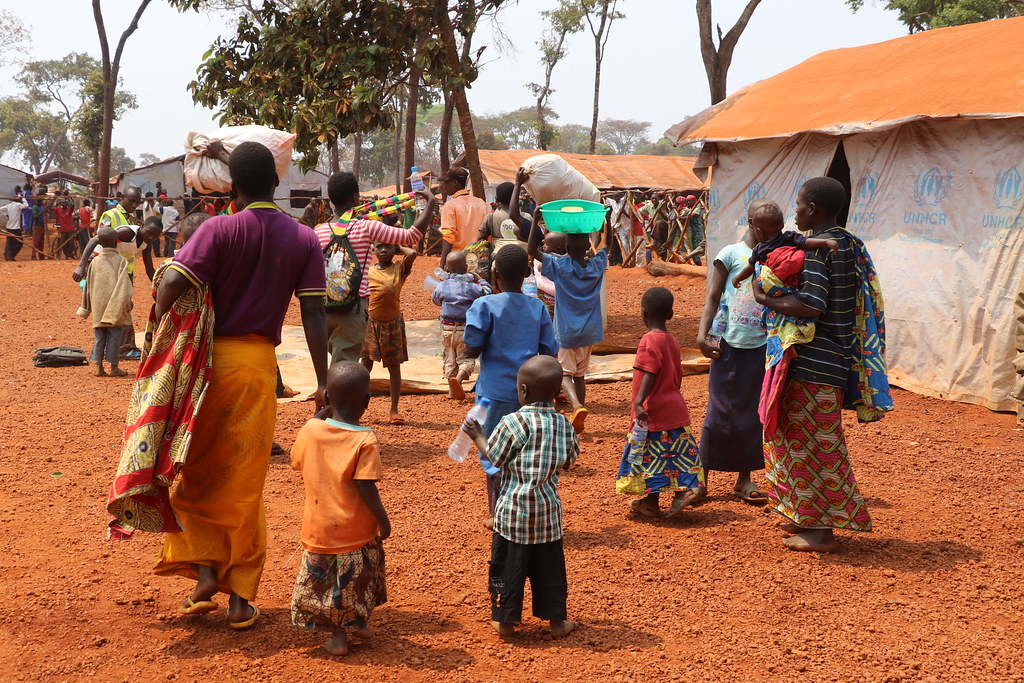When the word “refugee” makes headlines, it’s usually in the context of an emergency — a border crisis, a sudden evacuation, or a tragic image that briefly captures the world’s attention. But what happens when the crisis doesn’t end? What happens when the cameras leave and the aid slows down?
Across Africa, millions of refugees remain displaced for decades, caught in a cycle of dependency with few legal rights and little opportunity for change. This is the reality in camps like Nyarugusu, located in Tanzania’s Kigoma region, where Equipping Hope International does its work.
This is the overlooked crisis of long-term displacement. And it’s one we cannot afford to ignore.
Refugee Camps Weren’t Meant to Last This Long
Nyarugusu refugee camp was established in 1996 as a temporary solution for Congolese refugees fleeing conflict. Later, it absorbed large numbers of Burundian refugees as well. Today, more than 150,000 people still live in a camp design for less than half the number of residents.
Some have been there for over 20 years. Children have been born there and grown up without ever seeing the country their parents fled. Families depend on rations that were never meant to sustain life long term.
The world treats these camps as holding zones. But for those who live in them, this is real life.
Why Long-Term Displacement Is So Dangerous
Extended time in a refugee camp means more than a loss of freedom. It means:
-
-
-
- Chronic food insecurity, with limited or no ability to supplement aid
- Legal restrictions on movement and employment, enforced by host governments
- Underfunded education systems, especially for older youth and adults
- Lack of opportunity to build a future
- Vulnerability to exploitation, particularly for women and children
-
-
Long-term displacement robs people of agency. It reduces them to numbers. And it slowly erodes the human spirit.
“Speak up for those who cannot speak for themselves, for the rights of all who are destitute.” — Proverbs 31:8
We believe that every person in a refugee camp still carries the image of God — and the right to be treated as an image bearer.
The Refugee Story You Haven’t Heard
At Equipping Hope, we’ve had the privilege of seeing what life in a long-term camp really looks like. We’ve seen the mothers who line up to learn tailoring, the young men practicing English after dark, the kids running barefoot with joy despite everything.
These are not helpless victims. They are survivors. They are resourceful, wise, and resilient. What they need isn’t just more charity. They need opportunity.
As a Christian nonprofit in Tanzania, we see these individuals each day. We see their needs. But also their hopes and dreams. That’s why our work focuses on education and vocational training, not just because it meets a practical need, but because it restores something deeper: the ability to choose, contribute, and hope.
How the Church Can Respond
The Church has always been called to go where the world forgets. To serve the least seen. To lift up those who are overlooked.
Refugees in Africa don’t make headlines. But they still matter.
They need partners who are willing to invest in the long game, not just food and shelter, but skills, discipleship, and infrastructure. They need advocates who will ask hard questions about justice, sustainability, and dignity. They need churches, families, and individuals who see them not as a cause, but as brothers and sisters in Christ.
“The Lord is a refuge for the oppressed, a stronghold in times of trouble.” — Psalm 9:9
What You Can Do
You may not be able to fix global systems. But you can:
-
-
-
- Support programs that empower, not just provide
- Pray for wisdom, endurance, and dignity for long-term refugees
- Share these stories to help raise awareness
- Walk with organizations like Equipping Hope that are rooted in relationship, not headlines
-
-
Let’s Not Look Away
The long-term refugee crisis in Africa is one of the most pressing issues of our time, but one of the least followed or tweeted about. It won’t be solved by short-term aid or quick solutions. But it can be addressed with patience, partnership, and persistence.
Let’s not wait for another headline. Let’s start now.
With resolve and hope,
The Equipping Hope Team
